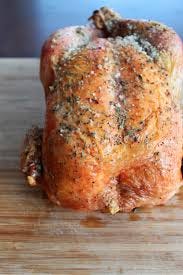Come in the middle? Here’re links to ➡️ Chapter One, Chapter 2, Chapter 3, Chapter 4, Chapter 5, Chapter 6, Chapter 7, Chapter 8, Chapter 9
BLISS
Back in Missouri, I find the professor through a three-day foray on PerfectMatch.com. I write him. The correspondence that followed over less than four months from the last week in January to April fills 227 pages (I am not making this up either) of almost totally his words while I was in Missouri and he, in Baltimore. Yes, I did meet him. I did return to D.C. We did become lovers ever so briefly.
He loves the phrase “aesthetic bliss.”
He refers to Nabokov’s use of the word though he never identified the exact source: “an essay,” he said. But I know the phrase comes from Nabokov’s afterword for Lolita:
There are gentle souls who would pronounce Lolita meaningless because it does not teach them anything. I am neither a reader nor a writer of didactic fiction, and, despite John Ray’s [Nabokov’s fictional writer of the foreword to the novel] assertion, Lolita has no moral in tow. For me a work of fiction exists only in so far as it affords me what I shall bluntly call aesthetic bliss, that is a sense of being somehow, somewhere, connected with other states of being where art (curiosity, tenderness, kindness, ecstasy) is the norm.In “On Involuntary Bliss,” Nietzsche closes with this: Zarathustra laughed to his heart, and said mockingly: “Happiness runs after me. That is because I do not run after women. For happiness is a woman.”
Nietzsche also loves the word bliss. He uses it twenty-six times in Thus Spoke Zarathustra.
On the first day and evening when I “virtually” met the professor, he wrote me ten e-mails that filled twenty-eight single-spaced pages. Yes, I saved them all.
Read this: “When you actually read my profile, you’ll see that you are exactly what I’m looking for, because the core of what I’m looking for, beyond being able to share ‘aesthetic bliss’ with her is this: ‘If you’re the one, I want an evolving [i.e., lifelong, unending], deepening conversation with you in which we use all the verbal and physical resources we have, to know and be known—the good, the bad, and the fabulous. We could also use a shared joke, a simpatico sense of humor and irony about life, and us.’ Yeah, I know, we haven’t gotten to the in the flesh physical yet (though I was building a pretty good mental image of that too as we were talking! And I printed out the largest image of your picture I could get from Perfectmatch, which I’m keeping beside my computer now to remind me every day of how good-looking you truly are). But otherwise, I experienced everything I’m talking about here in the profile in our conversation tonight. (By the way, I don’t even have a ‘cut’ option when I go to my Match profile. So I’ve printed it, so I can snail mail it to you. Please give me your Columbia address: it’s safe! I'm a thousand miles away! And I do want you to read the profile, because you will see in black and white how perfect you are for me, as I know you felt you obviously were in our conversation tonight.)”
As you might guess, he was not perfect for me.
Do we really believe in the phrase “perfect for me”?
He was a deluge.
What follows is an actual description of my condo in D.C. on the night soon after I rejected the professor, a night in May or June, when I roasted a chicken.
I refer to myself in the third person. Is that more or less solipsistic?
More.
I do this because I need some distance from my foolishness—and the fact that I was then smitten with someone else.
She had to find the key to the windows. She didn’t know that windows on the seventh floor needed keys. She had only opened one when she moved in during winter. These gizmos prevent the windows from being opened with a protrusion of metal that the key fits into. Turn it one way and the window won’t open; turn it the other and the window will. She kept getting on and off the ladder to stick the key into a window, open it, jump back on the ladder and continue fanning the smoke alarm.
She still doesn’t know what makes the sprinkler system actually go off. But she also knows that yelling “help” in her hallway while her smoke alarm is screaming bloody murder does not raise a soul on a Thursday night. It was Thursday for god’s sake. Wasn’t anyone home?
When it was all over and the chicken was sitting majestically crispy on the counter and ready to eat and she had sprinkled the chopped thyme into the juices and done the only basting Thomas Keller requires—at the very end while the chicken is resting—she by the way needed to lie down—she knew that she could take care of herself.
She had, after all, saved a twelve story building from burning or being evacuated and cooked a chicken that was hot damn good for the man she was smitten with. And boy was she smitten.
But not with the professor by the time I move back from Missouri and into my condo in D.C.
When I reject the professor, he first excoriates me. He asserts that he gets me. How dare I reject him.
Then he analyzes me. And perhaps he is right. Here is his analysis:
“After all you’d been through, you naturally needed a ‘fever dream,’ an escape into passion on all levels, from chocolate-covered strawberries on—[I sent him these on Valentine’s Day]. But your psyche was always aware of the danger of drowning in the flood, and eventually you therefore ‘woke up’ from the dream, and realized, like Marianne in S&S [he refers to Marianne in Jane Austen’s Sense and Sensibility] and Don Quixote, after their emblematic fevers, that you have to come to terms with reality.”
Here is Thomas Keller’s recipe at Epicurious under Mon Poulet Rôti:
Ingredients
One 2- to 3-pound farm-raised chicken
Kosher salt and freshly ground black pepper
2 teaspoons minced thyme (optional)
Unsalted butter
Dijon mustard
Preparation
Preheat the oven to 450°F. Rinse the chicken, then dry it very well with paper towels, inside and out. The less it steams, the drier the heat, the better.
Salt and pepper the cavity, then truss the bird. Trussing is not difficult, and if you roast chicken often, it's a good technique to feel comfortable with. When you truss a bird, the wings and legs stay close to the body; the ends of the drumsticks cover the top of the breast and keep it from drying out. Trussing helps the chicken to cook evenly, and it also makes for a more beautiful roasted bird.
Now, salt the chicken—I like to rain the salt over the bird so that it has a nice uniform coating that will result in a crisp, salty, flavorful skin (about 1 tablespoon). When it’s cooked, you should still be able to make out the salt baked onto the crisp skin. Season to taste with pepper.
Place the chicken in a sauté pan or roasting pan and, when the oven is up to temperature, put the chicken in the oven. I leave it alone—I don't baste it, I don't add butter; you can if you wish, but I feel this creates steam, which I don't want. Roast it until it’s done, 50 to 60 minutes. Remove it from the oven and add the thyme, if using, to the pan. Baste the chicken with the juices and thyme and let it rest for 15 minutes on a cutting board.
Remove the twine. Separate the middle wing joint and eat that immediately. Remove the legs and thighs. I like to take off the backbone and eat one of the oysters, the two succulent morsels of meat embedded here, and give the other to the person I'm cooking with. But I take the chicken butt for myself. I could never understand why my brothers always fought over that triangular tip—until one day I got the crispy, juicy fat myself. These are the cook’s rewards. Cut the breast down the middle and serve it on the bone, with one wing joint still attached to each. The preparation is not meant to be super-elegant. Slather the meat with fresh butter. Serve with mustard on the side and, if you wish, a simple green salad. You'll start using a knife and fork, but finish with your fingers, because it’s so good.
A roast chicken prepared in one hour, tender, remarkable. Safe from fire. No alarm:
Aesthetic bliss.
Nietzsche says, With rope-ladders I have learned to climb to many a window; with swift legs, I climbed high masts; and to sit on high masts of knowledge seemed to me no small bliss [sometimes translated as happiness]: to flicker like small flames on high masts—a small light only and yet great comfort for shipwrecked sailors and castaways.
If you’re here free and would love to be a dear, might you help me by subscribing “paid”?
Grateful acknowledgment is made to the following for permission to reprint previously published material in chapter 10:
Vladimir Nabokov: Excerpt from Lolita by Vladimir Nabokov copyright © 1955 by Vladimir Nabokov. Used by permission of Vintage Books, a division of Random House, Inc.







My experience of reading these (Re)Making Love installments is one of simply, unusually, without any critical distance, feeling empathetically, painfully for protagonist Mary's romantic immersions -- and then writer Mary sets me thinking by also considering the musical score, surveying the kitchen, roasting the perfect chicken, and quoting some blissful Nabokov and sublime Nietzsche, and I can't wait for the next installment.
Delicious, Mary - and I don't just mean the chicken! 🙌